-
 Bitcoin
Bitcoin $117500
2.15% -
 Ethereum
Ethereum $3911
6.19% -
 XRP
XRP $3.316
10.79% -
 Tether USDt
Tether USDt $1.000
0.01% -
 BNB
BNB $787.2
2.24% -
 Solana
Solana $175.2
4.15% -
 USDC
USDC $0.9999
0.00% -
 Dogecoin
Dogecoin $0.2225
8.40% -
 TRON
TRON $0.3383
0.28% -
 Cardano
Cardano $0.7868
6.02% -
 Stellar
Stellar $0.4382
9.34% -
 Hyperliquid
Hyperliquid $40.92
7.56% -
 Sui
Sui $3.764
7.63% -
 Chainlink
Chainlink $18.48
10.66% -
 Bitcoin Cash
Bitcoin Cash $582.1
1.88% -
 Hedera
Hedera $0.2601
6.30% -
 Avalanche
Avalanche $23.33
4.94% -
 Ethena USDe
Ethena USDe $1.001
0.02% -
 Litecoin
Litecoin $122.3
2.04% -
 UNUS SED LEO
UNUS SED LEO $8.969
-0.27% -
 Toncoin
Toncoin $3.339
0.86% -
 Shiba Inu
Shiba Inu $0.00001287
4.30% -
 Uniswap
Uniswap $10.43
7.38% -
 Polkadot
Polkadot $3.861
5.08% -
 Dai
Dai $1.000
0.02% -
 Bitget Token
Bitget Token $4.513
3.41% -
 Monero
Monero $267.7
-6.18% -
 Cronos
Cronos $0.1499
4.14% -
 Pepe
Pepe $0.00001110
5.15% -
 Aave
Aave $284.9
8.28%
Which blockchain platforms are suitable for small investments?
Small blockchain investments offer diverse opportunities, but thorough research into platform security, fees, and tokenomics is crucial before investing; diversification minimizes risk.
Mar 24, 2025 at 06:07 am
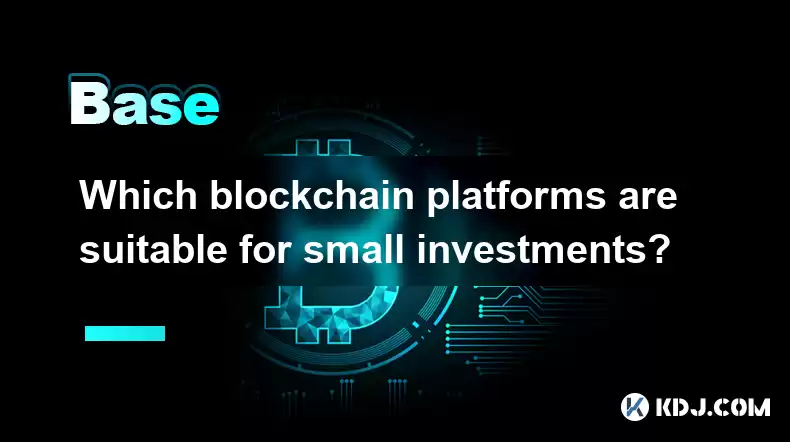
Key Points:
- Several blockchain platforms offer opportunities for small investments, each with varying levels of risk and potential reward.
- Factors to consider include transaction fees, ease of use, and the platform's overall security and reputation.
- Investing small amounts allows for diversification across different platforms and projects.
- Understanding the specific platform's technology and tokenomics is crucial before investing.
- Thorough research and risk assessment are essential regardless of investment size.
Which Blockchain Platforms are Suitable for Small Investments?
Investing in cryptocurrency can seem daunting, especially with the high price tags often associated with major players like Bitcoin. However, many blockchain platforms offer opportunities for smaller investors to participate. The key is to find platforms that cater to smaller transactions and have low barriers to entry. This doesn't mean foregoing due diligence; thorough research remains paramount regardless of investment size.
One aspect to consider is transaction fees. Platforms with high transaction fees can quickly eat into small investments. Look for platforms that utilize efficient consensus mechanisms, leading to lower costs per transaction. Ethereum, for example, while popular, can have high gas fees, making it less ideal for very small investments unless you are using a layer-2 solution like Polygon or Optimism. These layer-2 solutions significantly reduce transaction costs on the Ethereum network.
Ease of use is another critical factor. Some platforms boast complex interfaces and require significant technical knowledge. For smaller investors, a user-friendly platform is essential to avoid costly mistakes and frustrating experiences. Consider platforms with intuitive interfaces and readily available educational resources. Platforms with robust mobile applications can also enhance accessibility.
Security is paramount. Choose established platforms with a proven track record of security and reliability. Research the platform's security measures, including measures against hacking and other vulnerabilities. Read reviews and look for evidence of a strong community supporting the platform. A platform with a well-established reputation generally implies higher security.
Understanding the platform's tokenomics is vital. Tokenomics refers to the economic model of a cryptocurrency, including its supply, distribution, and utility. Understanding how the platform's token is used and its potential for growth is crucial for making informed investment decisions. Consider factors like token burning mechanisms, staking rewards, and the overall demand for the token.
Diversification is key, even with small investments. Don't put all your eggs in one basket. Spread your investment across different platforms and projects to mitigate risk. This approach reduces the impact of any single platform's potential failure. Remember, even small, diversified investments can yield substantial returns over time.
Specific Platforms to Consider (with caveats):
Several platforms might suit small investments, but each has its own risks and rewards. Remember that this is not financial advice.
- Algorand: Known for its fast and low-cost transactions, making it potentially suitable for smaller investments. However, its market capitalization is relatively smaller compared to some other platforms.
- Cardano: While transaction fees are generally manageable, its ecosystem is still developing, leading to potential volatility.
- Solana: Offers high transaction speeds, but its history of network outages raises concerns about stability.
- Polygon (MATIC): A layer-2 scaling solution for Ethereum, reducing transaction costs significantly, making it more accessible for smaller investors. However, it's still dependent on the Ethereum network.
- Binance Smart Chain (BSC): Offers low transaction fees, but its centralized nature presents a different set of risks compared to decentralized platforms.
Investing in Decentralized Applications (dApps):
Beyond the underlying blockchain platforms, you can also consider investing in decentralized applications (dApps) built on these platforms. Many dApps have their own tokens, offering potentially higher returns but also higher risks. Research thoroughly before investing in any dApp token. Look for projects with strong teams, clear roadmaps, and active communities.
Step-by-Step Guide to Investing Small Amounts in Cryptocurrency:
- Research: Thoroughly research different blockchain platforms and cryptocurrencies before investing.
- Choose a reputable exchange: Select a cryptocurrency exchange with a good reputation for security and user experience.
- Fund your account: Deposit a small amount of money into your exchange account. Start with what you can afford to lose.
- Buy cryptocurrency: Purchase the cryptocurrency of your choice.
- Store your cryptocurrency: Securely store your cryptocurrency in a suitable wallet (hardware wallets are generally recommended for long-term storage).
- Monitor your investment: Regularly monitor your investment and adjust your strategy as needed.
Frequently Asked Questions:
Q: What is the minimum investment amount for most blockchain platforms?
A: Many platforms don't have a minimum investment amount, but the exchange you use might have minimum deposit requirements. However, even with no minimums, you should only invest what you can comfortably afford to lose.
Q: Are small investments profitable?
A: Profitability depends on market conditions and your investment strategy. Small investments can still yield significant returns if the chosen cryptocurrency appreciates significantly in value, but they also carry a higher risk of loss.
Q: How can I minimize risks when investing small amounts?
A: Diversify your portfolio across different platforms and cryptocurrencies, conduct thorough research, and only invest what you can afford to lose. Consider dollar-cost averaging to reduce the impact of volatility.
Q: What are the risks associated with investing in smaller blockchain platforms?
A: Smaller platforms might have less liquidity, making it harder to buy or sell your cryptocurrency quickly. They might also be more susceptible to scams or security breaches.
Q: Where can I learn more about blockchain technology and cryptocurrency?
A: Numerous online resources, including reputable websites, educational platforms, and community forums, offer information on blockchain technology and cryptocurrency. However, be wary of misleading or inaccurate information.
Disclaimer:info@kdj.com
The information provided is not trading advice. kdj.com does not assume any responsibility for any investments made based on the information provided in this article. Cryptocurrencies are highly volatile and it is highly recommended that you invest with caution after thorough research!
If you believe that the content used on this website infringes your copyright, please contact us immediately (info@kdj.com) and we will delete it promptly.
- XRP ETF, Bitcoin ETF, and Japan: A New Era for Crypto Investing?
- 2025-08-08 14:30:12
- Crypto, Congress, and Bills: Navigating the Regulatory Landscape in 2025
- 2025-08-08 14:30:12
- Union Jack Oil, Unused Gas, and Bitcoin: A New York Minute on UK's Crypto-Energy Play
- 2025-08-08 14:50:12
- Bitcoin Price: Bullish Flag Points to $123K Breakout?
- 2025-08-08 14:50:12
- Crypto Group's WNBA Dildo Toss: Meme Coin Mania or Just Plain Dumb?
- 2025-08-08 14:55:13
- Stablecoins, Hong Kong, and On-Chain Finance: Navigating the Regulatory Maze
- 2025-08-08 12:30:12
Related knowledge
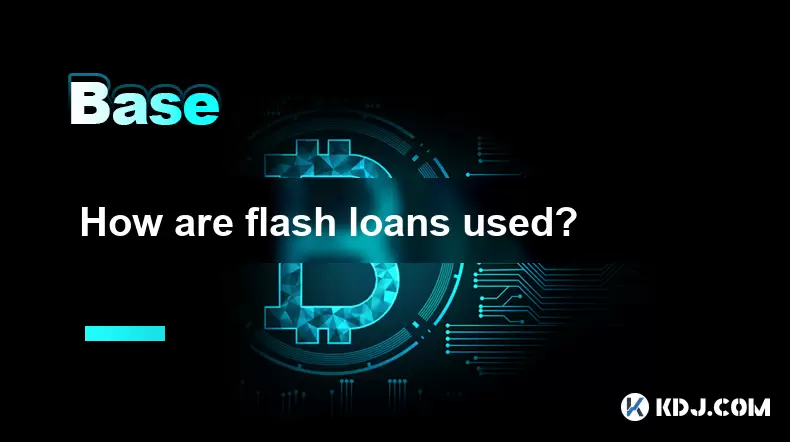
How are flash loans used?
Aug 08,2025 at 01:08pm
Understanding Flash Loans in Decentralized FinanceFlash loans are a unique innovation within the decentralized finance (DeFi) ecosystem, allowing user...
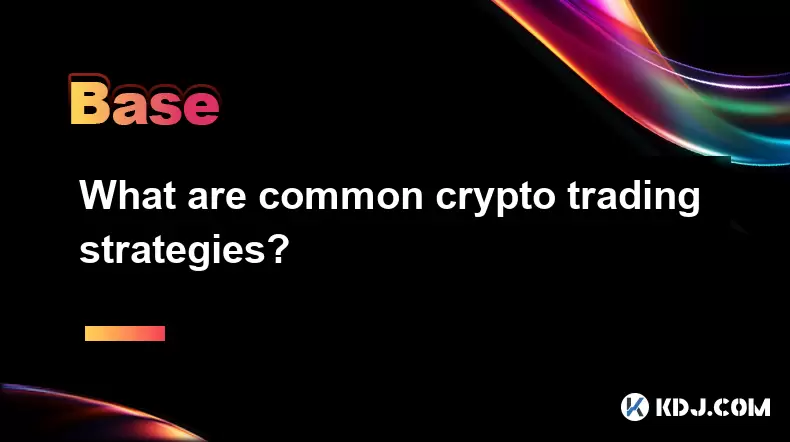
What are common crypto trading strategies?
Aug 08,2025 at 12:42pm
Understanding Trend Following in Crypto TradingTrend following is one of the most widely adopted crypto trading strategies due to its simplicity and a...
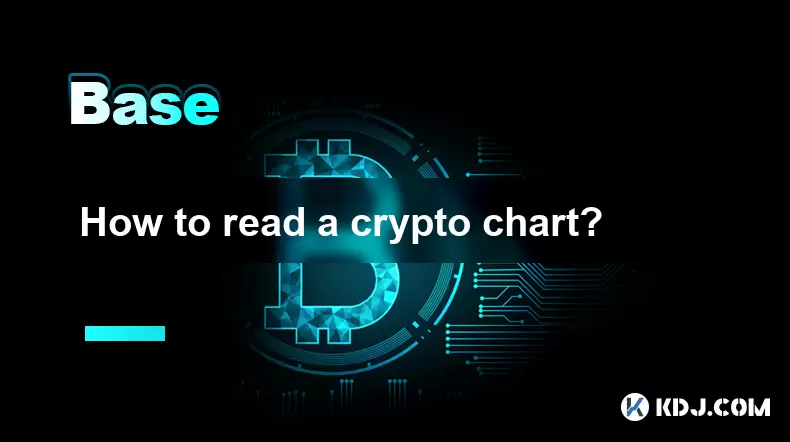
How to read a crypto chart?
Aug 08,2025 at 10:35am
Understanding the Basics of a Crypto ChartA crypto chart is a visual representation of the price movements of a cryptocurrency over time. These charts...
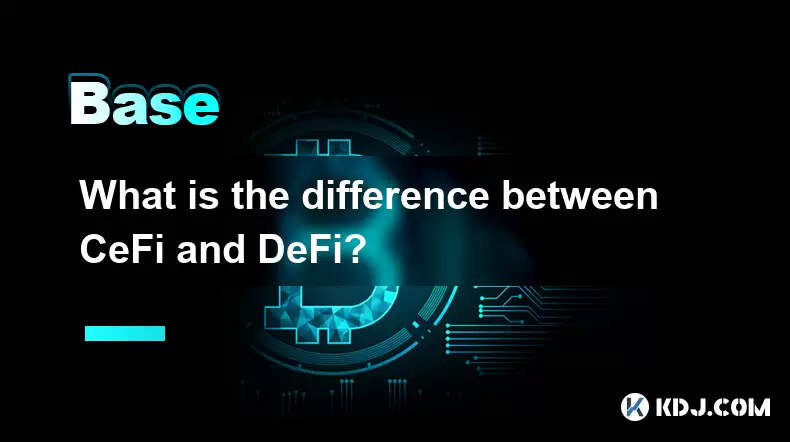
What is the difference between CeFi and DeFi?
Jul 22,2025 at 12:28am
Understanding CeFi and DeFiIn the world of cryptocurrency, CeFi (Centralized Finance) and DeFi (Decentralized Finance) represent two distinct financia...
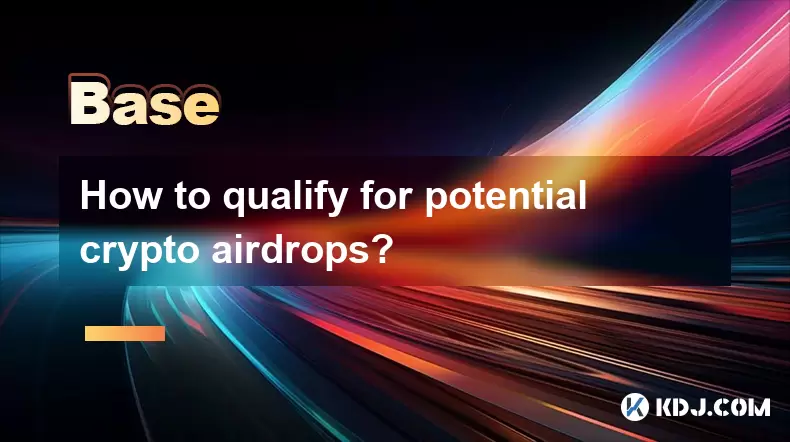
How to qualify for potential crypto airdrops?
Jul 23,2025 at 06:49am
Understanding What Crypto Airdrops AreCrypto airdrops refer to the distribution of free tokens or coins to a large number of wallet addresses, often u...
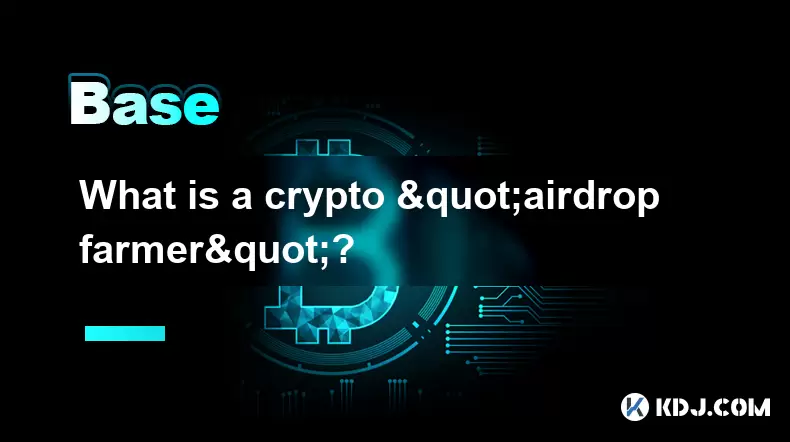
What is a crypto "airdrop farmer"?
Jul 24,2025 at 10:22pm
Understanding the Role of a Crypto 'Airdrop Farmer'A crypto 'airdrop farmer' refers to an individual who actively participates in cryptocurrency airdr...

How are flash loans used?
Aug 08,2025 at 01:08pm
Understanding Flash Loans in Decentralized FinanceFlash loans are a unique innovation within the decentralized finance (DeFi) ecosystem, allowing user...

What are common crypto trading strategies?
Aug 08,2025 at 12:42pm
Understanding Trend Following in Crypto TradingTrend following is one of the most widely adopted crypto trading strategies due to its simplicity and a...

How to read a crypto chart?
Aug 08,2025 at 10:35am
Understanding the Basics of a Crypto ChartA crypto chart is a visual representation of the price movements of a cryptocurrency over time. These charts...

What is the difference between CeFi and DeFi?
Jul 22,2025 at 12:28am
Understanding CeFi and DeFiIn the world of cryptocurrency, CeFi (Centralized Finance) and DeFi (Decentralized Finance) represent two distinct financia...

How to qualify for potential crypto airdrops?
Jul 23,2025 at 06:49am
Understanding What Crypto Airdrops AreCrypto airdrops refer to the distribution of free tokens or coins to a large number of wallet addresses, often u...

What is a crypto "airdrop farmer"?
Jul 24,2025 at 10:22pm
Understanding the Role of a Crypto 'Airdrop Farmer'A crypto 'airdrop farmer' refers to an individual who actively participates in cryptocurrency airdr...
See all articles

























































































